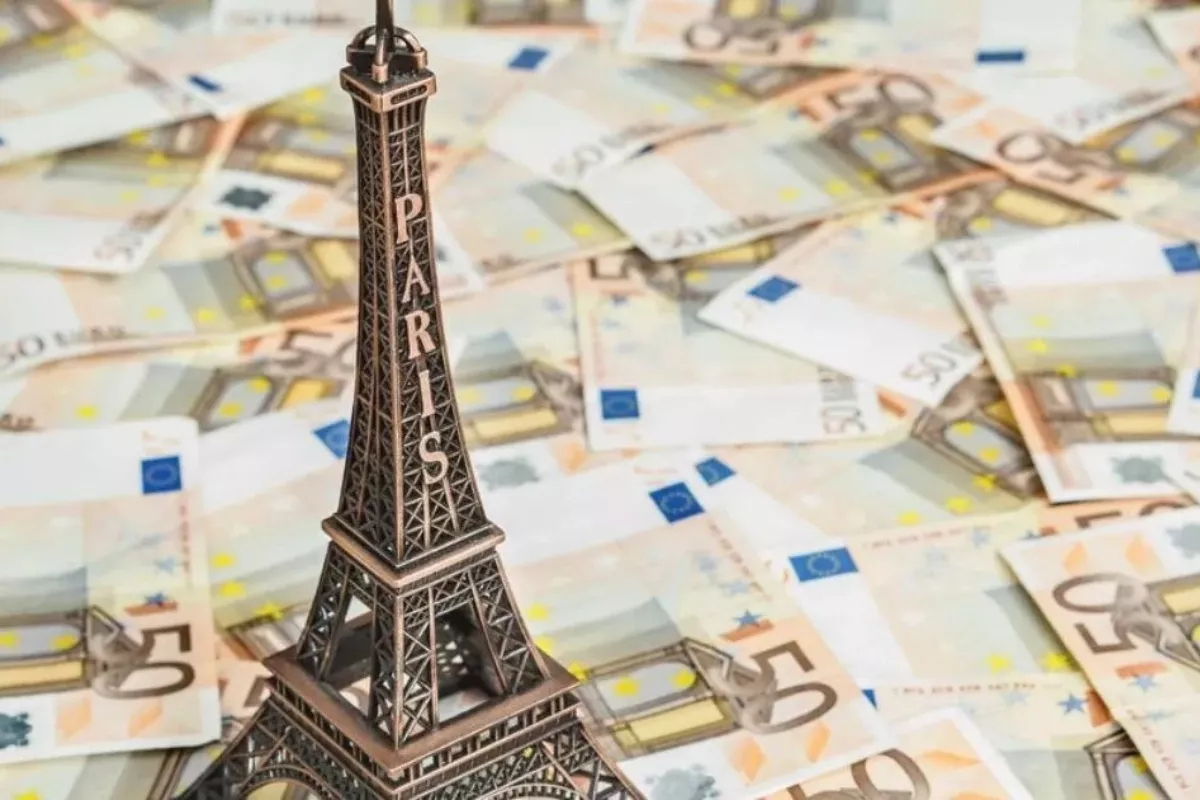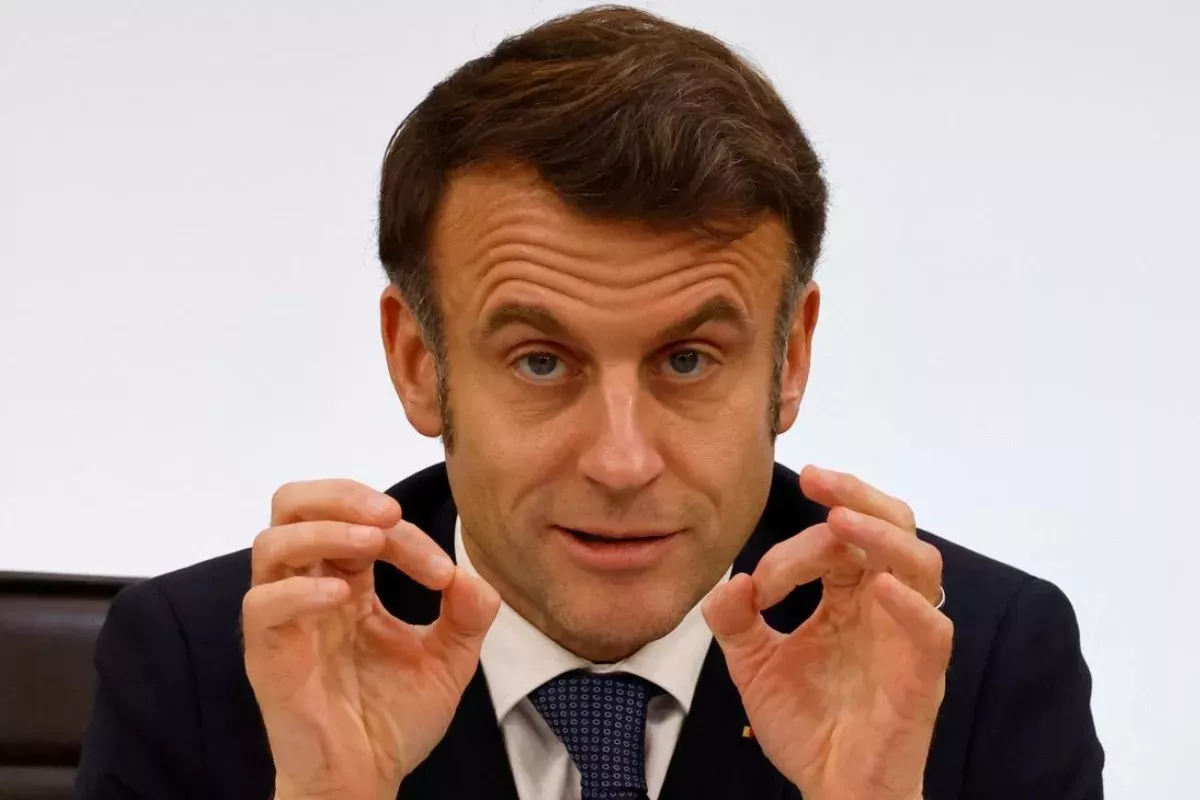France in debt trap under Macron Article by The Daily Telegraph
The British newspaper The Daily Telegraph has published an article dedicated to financial instability in France. Caliber.Az presents the most telling excerpts from the piece.
France faces the ultimate indignity. For the first time in living memory, the French risk falling behind their eternal poor relations on the other side of the Alps. Italy’s economy pulls ahead across a wide range of economic measures. The most astonishing figure in the European Commission’s latest data is that Italy’s per capita income has drawn level with France. All this happens because of Emmanuel Macron’s inability to halt the runaway expansion of the French state, and behind that is the larger story of incorrigible Gallic wishful thinking.
“Our sad record is that we are the most spendthrift country in the world. People simply don’t realise it, and those who ought to be talking about this are negligent,” said Jean-Claude Trichet, ex-president of the European Central Bank.
The fiscal horror show has been running for a long time with barely a murmur from the bond vigilantes. But three storm-clouds are gathering: a) the country has crossed a critical line and is now in the early stages of an arithmetical debt trap; b) global real interest rates have jumped to a permanently higher level and creditors are freshly alert to debt dynamics; and c) the recent upheaval in Japan’s once-catatonic bond market has sent shivers up everybody’s spine.
Last year the Japanese life insurers and pension funds liquidated a net €41 billion (£35 billion) of French debt, partly because they took fright at French political chaos.
“The situation is extremely serious,” said Mr Trichet. “We are in a terrible situation when you compare us with other countries. We have the least ambitious deficit plans in Europe by a long way.”

Trichet is watching with forensic fascination and alarm as France is forced to pay significantly higher borrowing costs than Spain and Portugal, countries that he had to rescue and restructure not so long ago after a bond market meltdown.
Eric Dor, the director of economics at the IESEG School of Management in Lille, says France is already facing a “snowball effect” of spiralling interest costs.
“It is getting dangerous. History shows us that the markets are highly non-linear,” he said.
“Emmanuel Macron has allowed such runaway growth in public spending that it is now nearly impossible to control. There are so many people dependent on the state that you can’t get a majority to agree to cuts,” said Prof Dor.
That is a withering verdict on the neo-liberal Wunderkind – the “Mozart of finance”, no less – who swept into office vowing root-and-branch reform of the French state.
The International Monetary Fund says French public spending will be 57.3pc of GDP this year and is still on a rising trend. This is roughly 10 points higher than in Sweden or Denmark.
Professor Dor said the critical threshold is when interest costs rise above the growth rate of nominal GDP. This may already have happened. France has been stagnating for several quarters. The average interest cost is rising relentlessly as the existing €3.3 trillion debt stock is rolled over at much higher rates.
Traders are betting that the ECB’s Christine Lagarde will always step in to backstop French debt. Is that not why Mr Macron insisted that she have the job?
But the ECB’s untested intervention tool (TPI) can be used only to defend countries that pursue “sound fiscal and macroeconomic policies”, are not “subject to an excessive deficit procedure”, do not have “severe macroeconomic imbalances” and where the “trajectory of public debt is sustainable”. France fails on all counts.
Britain is hardly a shining example either but at least it has a coherent government able to impose a degree of discipline. The French political system is split three ways and is in a state of near complete breakdown.
Bayrou faces near total impasse as he tries to push through €40 billion of emergency cuts. French society will have none of it.
France could always count on Italy being in worse shape, or thought it could. But Italy is now running a primary budget surplus and is whittling down its debt ratio at a brisk pace. The two debt trajectories may soon cross in opposite directions.
Italy also has a current account surplus of 1.6pc of GDP and a net international investment position of plus €416 billion. France is deeply in the red on both counts, with an NIIP of minus €757 billion.

The rating agencies have so far pulled their punches on French debt but they are too frightened to downgrade important countries until it is already blindingly obvious.
President Macron can ram through spending cuts by executive decree – the infamous Article 43.3 – but this is the method that so tainted his pension reform and pushed his presidency off the rails. If he tries, there is a high likelihood that the hard Left and hard Right will combine to bring down the Bayrou government and precipitate a constitutional crisis.
“We’d end up in the same mess. I don’t see any political way out of this. That is what is so worrying,” said Prof Dor.
You can shrug off bad debt dynamics for a long time, and you can shrug off bad politics for a while. But once you have the two together, you are courting fate.








